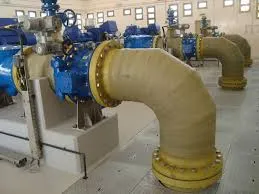
-
 Afrikaans
Afrikaans -
 Albanian
Albanian -
 Amharic
Amharic -
 Arabic
Arabic -
 Armenian
Armenian -
 Azerbaijani
Azerbaijani -
 Basque
Basque -
 Belarusian
Belarusian -
 Bengali
Bengali -
 Bosnian
Bosnian -
 Bulgarian
Bulgarian -
 Catalan
Catalan -
 Cebuano
Cebuano -
 China
China -
 China (Taiwan)
China (Taiwan) -
 Corsican
Corsican -
 Croatian
Croatian -
 Czech
Czech -
 Danish
Danish -
 Dutch
Dutch -
 English
English -
 Esperanto
Esperanto -
 Estonian
Estonian -
 Finnish
Finnish -
 French
French -
 Frisian
Frisian -
 Galician
Galician -
 Georgian
Georgian -
 German
German -
 Greek
Greek -
 Gujarati
Gujarati -
 Haitian Creole
Haitian Creole -
 hausa
hausa -
 hawaiian
hawaiian -
 Hebrew
Hebrew -
 Hindi
Hindi -
 Miao
Miao -
 Hungarian
Hungarian -
 Icelandic
Icelandic -
 igbo
igbo -
 Indonesian
Indonesian -
 irish
irish -
 Italian
Italian -
 Japanese
Japanese -
 Javanese
Javanese -
 Kannada
Kannada -
 kazakh
kazakh -
 Khmer
Khmer -
 Rwandese
Rwandese -
 Korean
Korean -
 Kurdish
Kurdish -
 Kyrgyz
Kyrgyz -
 Lao
Lao -
 Latin
Latin -
 Latvian
Latvian -
 Lithuanian
Lithuanian -
 Luxembourgish
Luxembourgish -
 Macedonian
Macedonian -
 Malgashi
Malgashi -
 Malay
Malay -
 Malayalam
Malayalam -
 Maltese
Maltese -
 Maori
Maori -
 Marathi
Marathi -
 Mongolian
Mongolian -
 Myanmar
Myanmar -
 Nepali
Nepali -
 Norwegian
Norwegian -
 Norwegian
Norwegian -
 Occitan
Occitan -
 Pashto
Pashto -
 Persian
Persian -
 Polish
Polish -
 Portuguese
Portuguese -
 Punjabi
Punjabi -
 Romanian
Romanian -
 Russian
Russian -
 Samoan
Samoan -
 Scottish Gaelic
Scottish Gaelic -
 Serbian
Serbian -
 Sesotho
Sesotho -
 Shona
Shona -
 Sindhi
Sindhi -
 Sinhala
Sinhala -
 Slovak
Slovak -
 Slovenian
Slovenian -
 Somali
Somali -
 Spanish
Spanish -
 Sundanese
Sundanese -
 Swahili
Swahili -
 Swedish
Swedish -
 Tagalog
Tagalog -
 Tajik
Tajik -
 Tamil
Tamil -
 Tatar
Tatar -
 Telugu
Telugu -
 Thai
Thai -
 Turkish
Turkish -
 Turkmen
Turkmen -
 Ukrainian
Ukrainian -
 Urdu
Urdu -
 Uighur
Uighur -
 Uzbek
Uzbek -
 Vietnamese
Vietnamese -
 Welsh
Welsh -
 Bantu
Bantu -
 Yiddish
Yiddish -
 Yoruba
Yoruba -
 Zulu
Zulu
frp vessel
Understanding FRP Vessels Advantages and Applications
Fiber-Reinforced Plastic (FRP) vessels have gained significant prominence in various industries due to their unique properties and applications. Composed of a polymer matrix reinforced with fibers, typically glass or carbon, FRP materials offer a lightweight yet strong alternative to conventional materials like metal and concrete. This article explores the benefits and applications of FRP vessels, highlighting their increasing role in modern engineering.
Understanding FRP Vessels Advantages and Applications
Another significant benefit of FRP vessels is their lightweight nature. Compared to traditional materials, FRP is considerably lighter, which facilitates easier handling, transportation, and installation. This characteristic can lead to reduced labor costs and improved efficiency during construction projects. Furthermore, the lightweight design allows for the construction of larger vessels without the structural limitations often posed by heavier materials.
frp vessel

FRP vessels also offer excellent thermal insulation properties. This is particularly advantageous in industries like food and beverage processing, where maintaining specific temperatures is crucial. The insulation capabilities of FRP help in energy conservation, leading to reduced operational costs over time.
In terms of versatility, FRP can be molded into complex shapes and sizes, providing engineers and designers the freedom to innovate. This flexibility allows for the creation of custom vessel designs that meet specific operational requirements, making FRP a popular choice in various applications. From storage tanks to pressure vessels, FRP's adaptability can address a wide range of needs across different sectors.
Moreover, the environmental impact of using FRP vessels should not be overlooked. As sustainability becomes a critical consideration in engineering, the manufacture of FRP materials often involves processes that are less energy-intensive than traditional materials. Additionally, FRP vessels can be designed for longevity, reducing the need for frequent replacements and thus lessening overall waste.
In conclusion, FRP vessels stand out as a superior choice for many applications in today's industrial landscape. Their lightweight nature, corrosion resistance, thermal insulation, and design versatility make them a valuable asset across various sectors. As industries continue to prioritize efficiency and sustainability, the role of FRP vessels is likely to expand, paving the way for innovative solutions in engineering and design.









